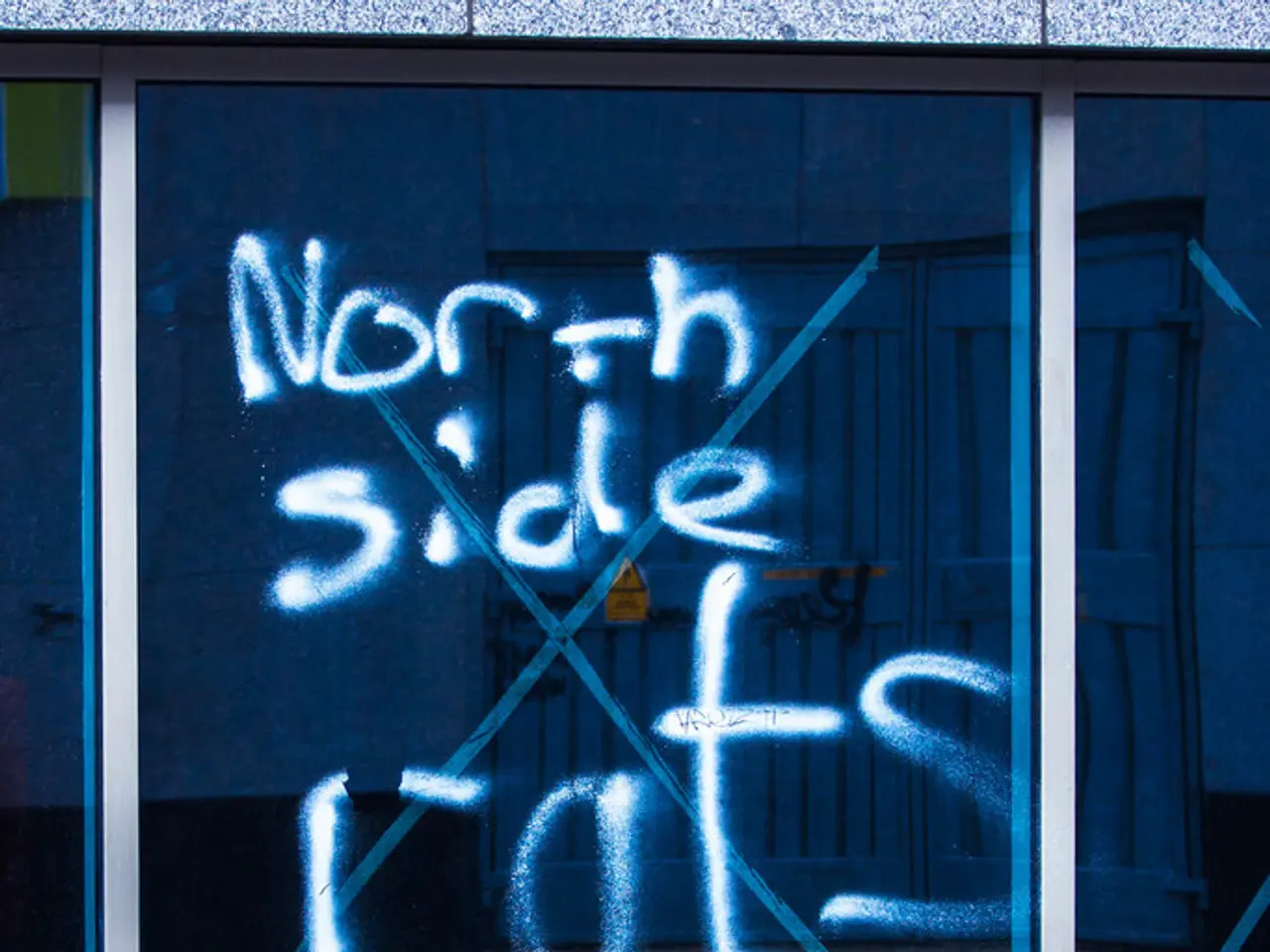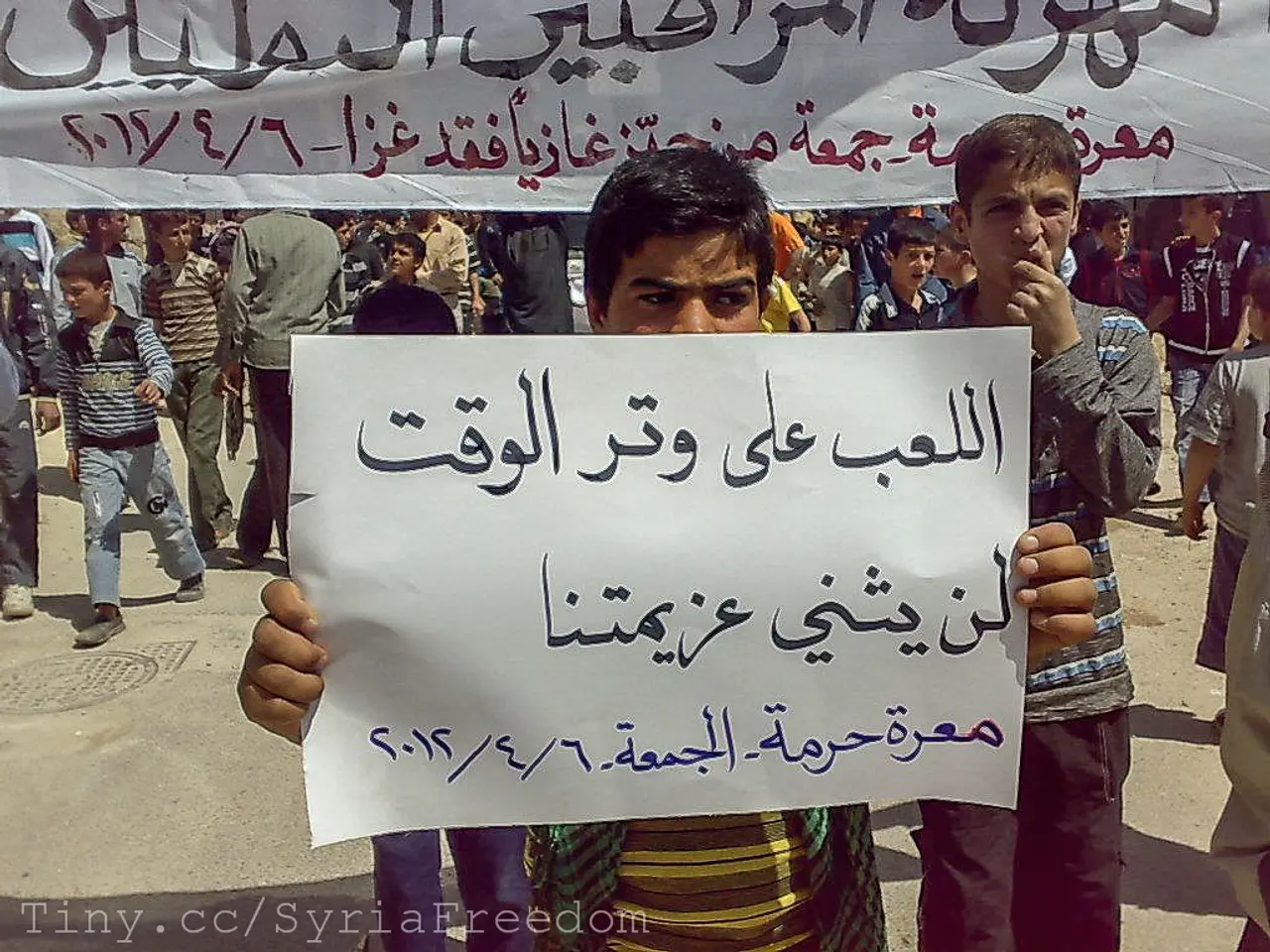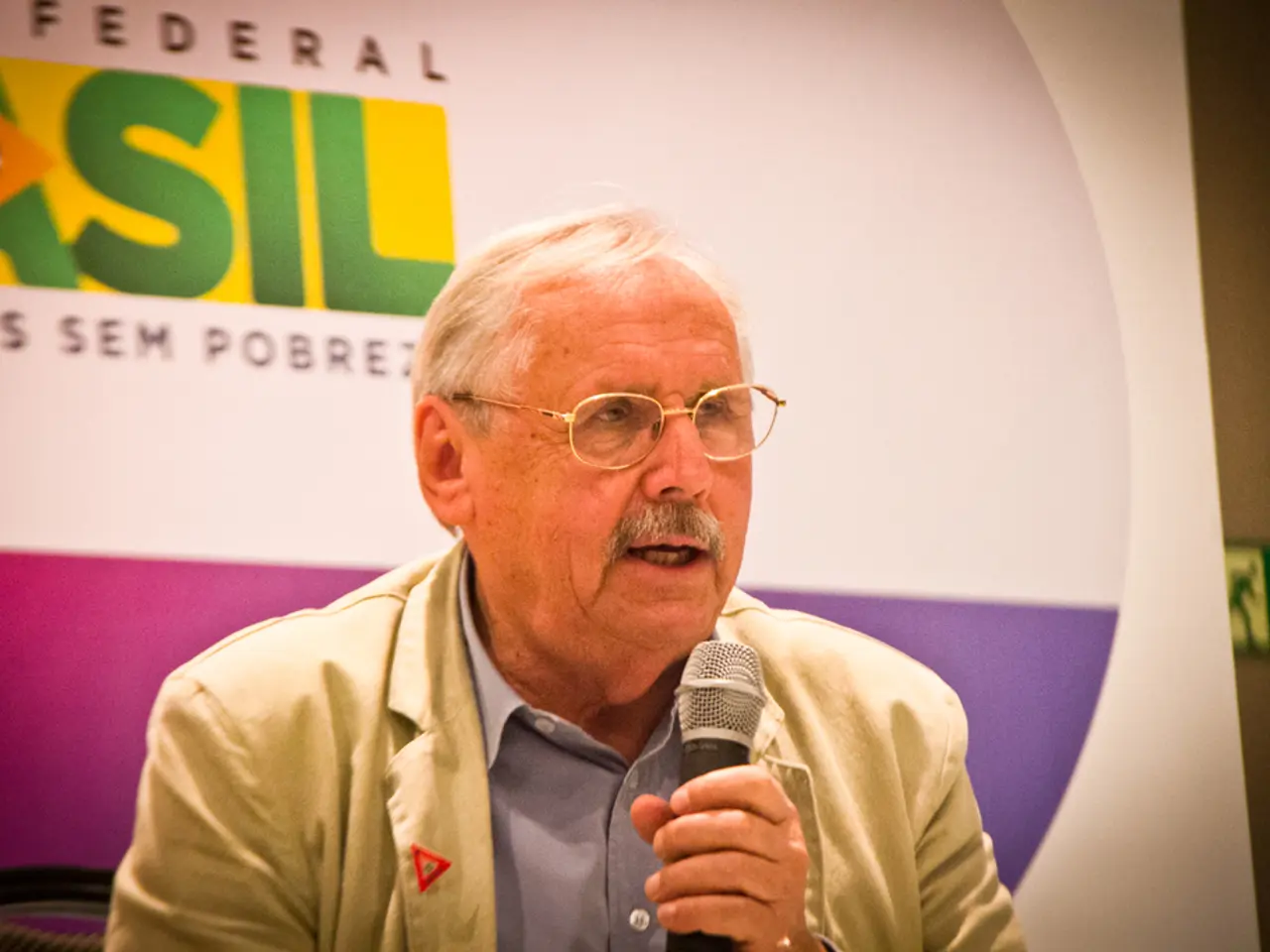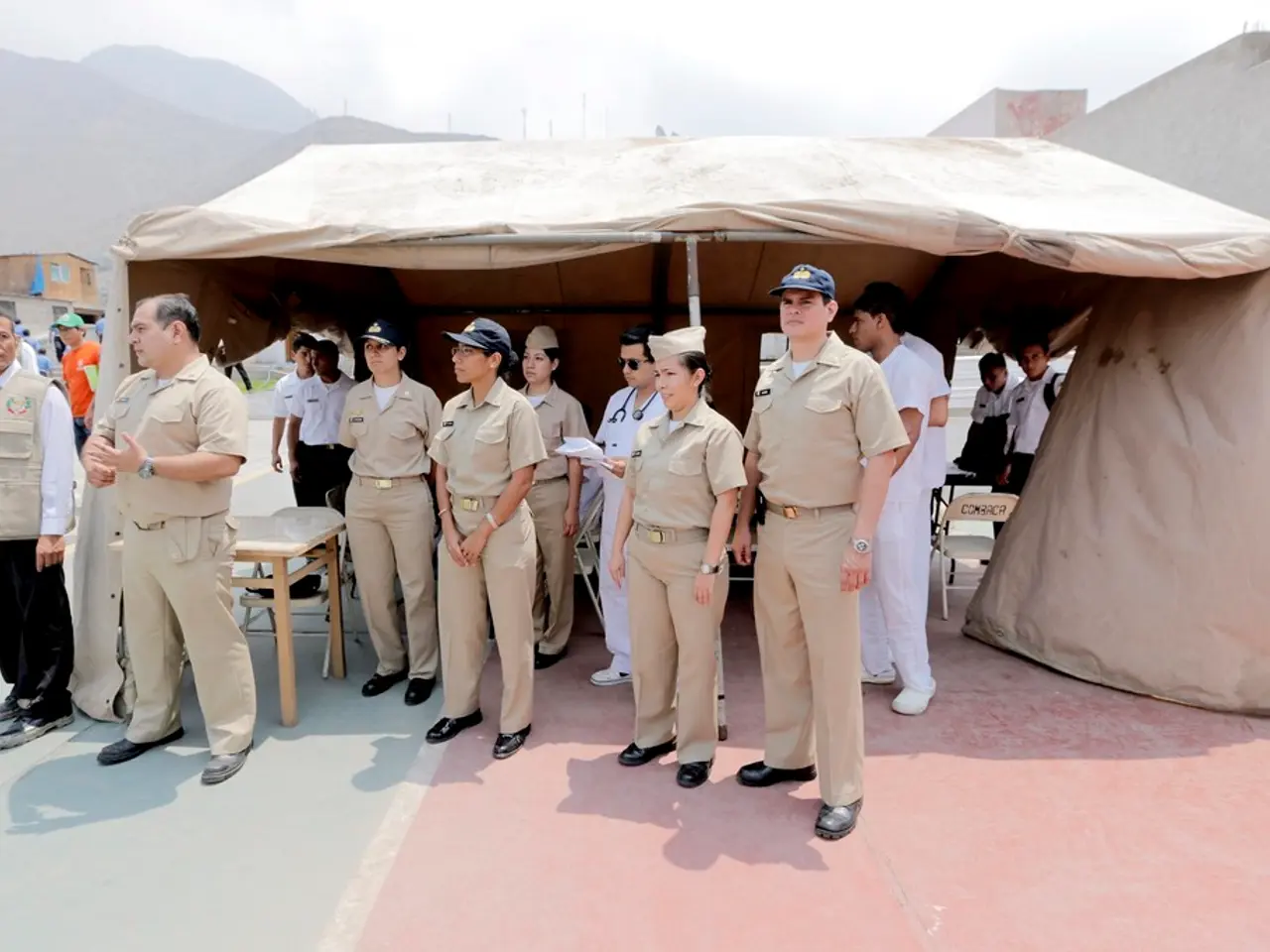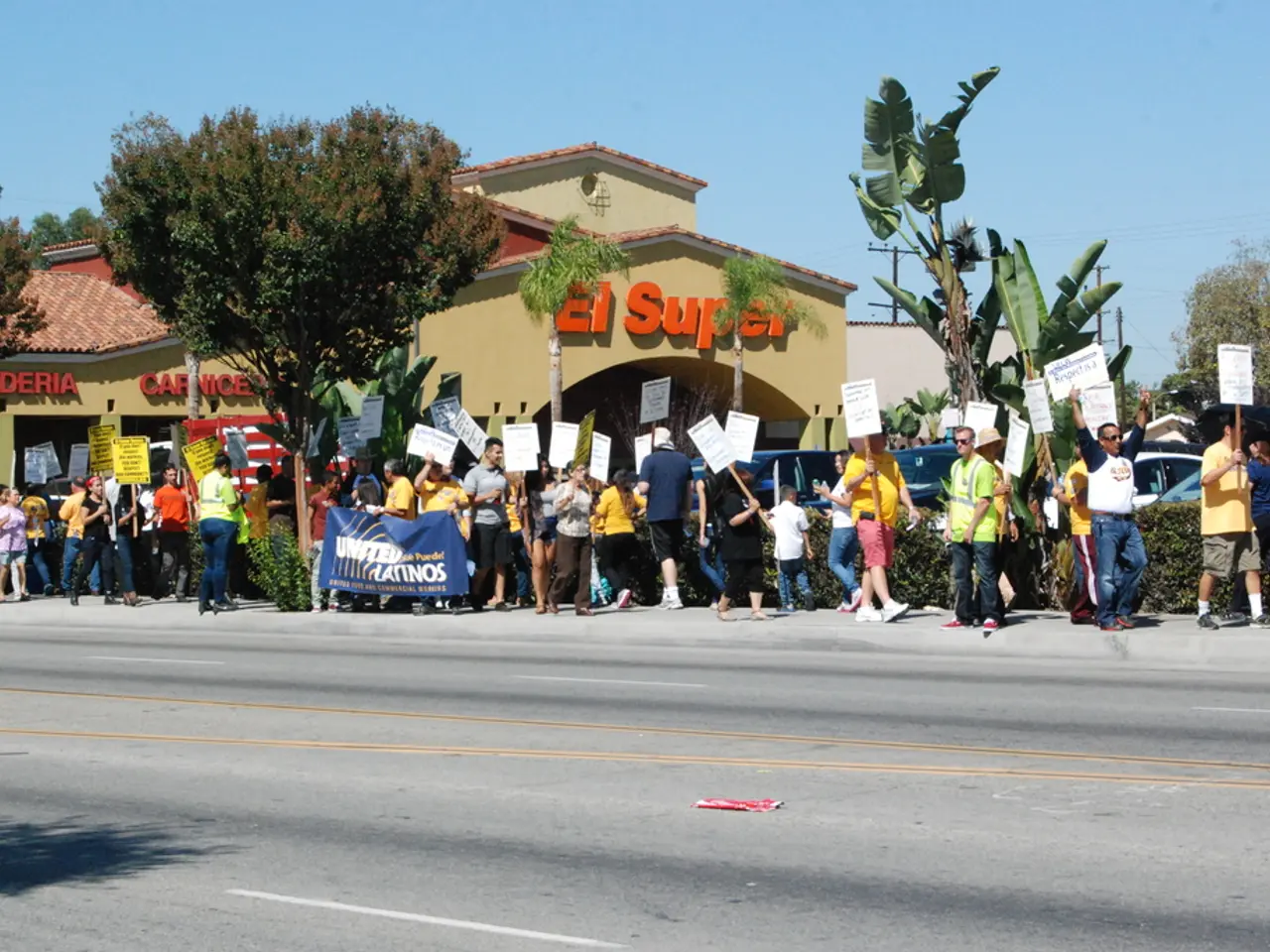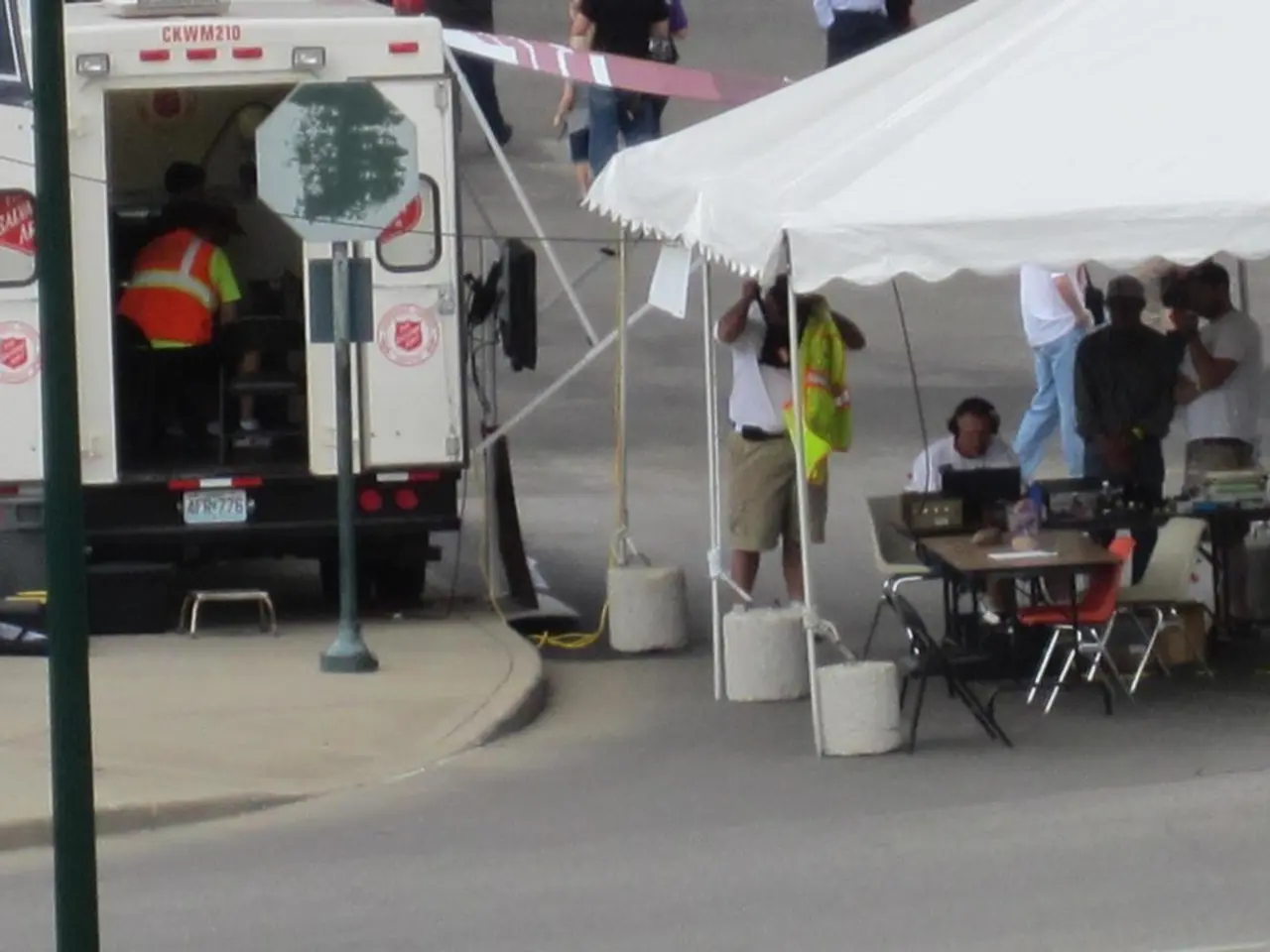Reinforced Verification at the German-Polish Border
In a move aimed at addressing illegal immigration and migrant smuggling, Poland has reinstated temporary border controls at its borders with Germany and Lithuania, effective from July 7, 2025. This decision follows Germany's similar border controls, which were reinstated in November 2023.
The controls, initially set for 30 days but potentially extendable, focus on vehicles with multiple passengers, buses, minibuses, and cars with tinted windows. According to Polish Interior Minister Tomasz Siemoniak, ordinary travellers have nothing to fear, and the aim is to minimize inconvenience for regular cross-border movement such as shopping and commuting.
The controls are in place at 14 border crossings, including Krajnik Dolny, where trucks are not checked. However, at the Frankfurt/Oder and Słubice crossing, pedestrians, cyclists, and vehicles are being checked. Officers, including military police-supported officers at Krajnik Dolny checkpoint coming from Schwedt, Germany, are stopping drivers for inspections.
The impact of these controls is multifaceted. The reinstatement of controls serves a dual purpose of enhancing migration control and responding politically to Germany's border policies. However, some officials view Poland's action as retaliation that risks pushing the Schengen system to its limits.
The controls at Poland's border with Germany are planned to continue until August 5. Federal Interior Minister Alexander Dobrindt has offered his Polish counterpart joint controls on the German side of the common border, but this offer has not been accepted so far.
The controls at the Polish-Lithuanian border have also been ordered, with an incident reported at one of the crossings where an Estonian citizen was detained with four people from Afghanistan attempting to enter irregularly. The Afghans are said to be rejected back to Lithuania, and the driver is still being questioned.
The introduction of Polish border controls has sparked mixed reactions. While some commuters and shoppers express doubts about the usefulness of the measure, others support the government's decision to strengthen border security. The center-left government in Warsaw has justified the controls as necessary for security and migration management.
The ADAC, a German automobile association, has expressed concerns about potential traffic jams for vacationers due to the temporary controls at Poland's border with Germany. Representatives of German economic associations in the border region had previously pointed out negative consequences for goods and commuter traffic before the start of stationary border controls.
In a sign of political tension, a banner with the slogan "No! Immigration" has been displayed near the Frankfurt/Oder and Słubice crossing. The move comes as Poland's border controls are partly a reaction to Germany's policies and allegations from far-right groups in Poland that Germany is pushing migrants back into Poland.
The controls are part of a broader migration summit on the Zugspitze, where Dobrindt has invited his counterparts from France, Poland, Austria, Denmark, the Czech Republic, the EU Commissioner for Home Affairs and Migration, Magnus Brunner, to discuss migration issues on July 18. The summit aims to improve EU external border protection.
- The reinstatement of temporary border controls by Poland in July 2025 is a part of their response to the ongoing issue of illegal migration and migrant smuggling, a move that has political implications and follows Germany's similar border controls from November 2023.
- The controls at the Polish-German border, although initially set for 30 days, have sparked controversy and political tension, with some officials viewing Poland's action as retaliation that risks pushing the Schengen system to its limits, while the center-left government in Warsaw justifies the controls as necessary for security and migration management.
